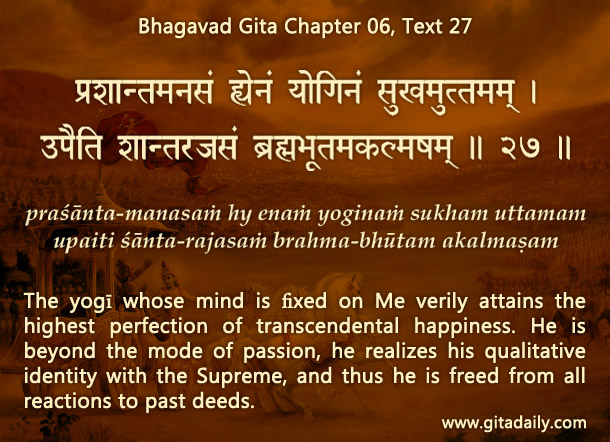We can force the world to leave us alone, but we can’t force our mind to leave us alone. The key to mind management is not seclusion but purification.
When anyone troubles us too much, we may tell them, “Just leave me alone.” If they refuse to leave us alone, then we may even use physical or legal force to ensure that they leave us alone. When appropriately warned, most people will leave us alone, except for possibly some stalkers who may be especially sneaky or scary. To get away from them, we may need to go away and may even have to change our appearance or identity so that they don’t track us.
Fortunately, most of us probably don’t have such stalkers that are distressingly difficult to get rid of. Unfortunately, however, we all do have one such “person” who will never leave us alone and whom we can never force to leave us alone: that is our mind.
While our mind is not a person in the literal sense of the word, it’s helpful to consider the mind to be like a person so that we get a sobering sense of the gravity, reality, and severity of the problem it poses for us. Our mind can distract us constantly and can sometimes even distort our perceptions, thereby misleading us and making us act in ways that are not just unproductive but counterproductive. And our mind is constantly inside us, sometimes whispering, sometimes shrieking, sometimes sobbing—ever ready to be a troublemaker.
When we want to get away from external troublemakers, we may seek seclusion. But no amount of seclusion can ever get us away from our mind. Does that mean we can do nothing about our mind’s shady shenanigans? Not necessarily. We can’t deal with our mind simply by seclusion, which can be a double-edged sword.
In dealing with the mind, sometimes getting away from the people who agitate our minds intentionally or whose very presence agitates our mind—even if they don’t intend to do so—can help make our mind a little more peaceful. While seclusion can have this positive effect in mind management, it can also have a negative effect in the sense of leaving us alone with our mind’s messiness, without the support or protection of those who can alert us when our mind starts impelling us to act in ways that are highly indecorous, insensible, immoral, or even downright self-destructive.
What can actually help us in mind management is purification, whereby we slowly but surely get rid of the impurities within us that make our mind act in distracting or distorting ways. Such purification comes by our diligent dedication to practices that connect us with realities purer than ourselves, and especially with the purest reality, namely the all-pure divinity Krishna.
Even after purification, it is not that our mind leaves us alone in the sense that it will no longer be present; our mind will still be with us. But it no longer has the unhealthy functional patterns that make us want to get away from it.
The Bhagavad Gita declares that by sustained yoga practice, we can purify our mind and thereby realize our spiritual essence and sublime happiness that lies in our absorption in the all-pure, all-loving, all-joyful divinity, Krishna (Bhagavad Gita 6.27).
Summary:
- When we are faced with troublemaking people, we can force them to leave us alone by physical or legal force, or we can choose to get away from them by living alone.
- Unfortunately, we can’t get away from the internal troublemaker—our mind—through seclusion, which may sometimes pacify it and may sometimes be exploited by it to agitate us further.
- The key to mind management is not seclusion but purification, whereby our focus on the all-pure divine frees our mind of the impurities that make it disturbing, thereby making it unnecessary for us to get rid of the mind itself.
Think it over:
- What are the two ways in which we can deal with external troublemakers?
- How is seclusion a double-edged sword in dealing with our mind? Can you recollect any incidents where you experienced this double-edged nature of seclusion with regards to the mind?
- What is the ultimate key to mind management, and how does it work?
***
06.27 The yogī whose mind is fixed on Me verily attains the highest perfection of transcendental happiness. He is beyond the mode of passion, he realizes his qualitative identity with the Supreme, and thus he is freed from all reactions to past deeds.


Leave A Comment